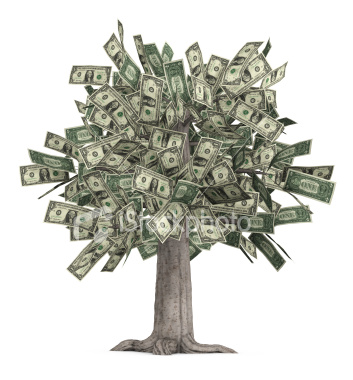Today, 62% of Americans are spending less than they did at the start of the recession. 72% say they buy less expensive brands, 57% have cut back on vacations and 30% spend less on alcohol or cigarettes. Additionally, half of Americans have cut back on household debt like car loans, credit card balances and mortgages.
Though most Americans spend and save differently today, not everyone plans to keep it up when they're feeling more flush. Seems it's the old dogs that have learned the new tricks.
Studies by PriceWaterhouseCoopers on post-recession spending, Packaged Facts on the restaurant industry and dozens of other studies reveal similar findings: older generations intend to continue to modify their spending while teens and twenty-somethings yearn to return to more carefree shopping style.
In consumer interviews I've conducted in the past year, older Americans typically describe some sort of an emotional benefit to spending less. They say they wouldn't want to return to their previous spending habits even if they could. Though many are looking forward to spending more freely in the future, they've changed.
"I don't ever want to feel like I don't have a big fat cushion. I get more satisfaction from having money in the bank than cute shoes in my closet now. That's a big switch for me." Jenny, 51
"I've not only stopped shopping as much, but I've also been getting rid of tons of stuff I don't use. I feel mentally lighter." Breanna, 44
"I've just lost interest somehow. I don't get the same thrill when I buy things. Most of my friends have stopped too so it's not a social thing anymore either. Even with groceries, I feel stupid when I overspend on stuff that used to feel like a treat." Carmen, 35

But there's one group that's not feeling it, our 10 to 30 year olds. Like everyone else, Gen Y has reduced their spending out of necessity. But it's been to a lesser extent than older generations. More importantly, their feelings about shopping and buying remain more positive than the over 30 crowd, and less changed by their recessionary shopping strategies.
"I shop here (Forever 21) because my mom is giving me less money and I can get more things here. I don't see myself shopping here as much when I get my own money." Andie, 16
"I want to travel now while I'm young. My parents are loaning me the money. I can always get a job when I get back - I have my whole life to work." Jason, 22
"I don't really see how we could save now. We need every bit of our paychecks for necessities." Kelli, 28, and Brad, 30 (interviewed while waiting to purchase an iPad)
How did Gen Y escape this shift toward frugality?
It's partly because of their generational personality. Compared to other generations when they were in their teens and twenties, Gen Y is brimming with confidence and optimism. As a product of the self-esteem movement, they have high expectations of their earning potential. They view setbacks as temporary. At most what I hear from Gen Y is that they feel like the recession has put their plans "on hold." When asked to predict their financial situation, 85% of Gen Y adults said they thought it would improve over the next year, compared with 69% of 30-49 year olds, 52% of 50-64 year olds and 35% of those over 65 feel the same way.
Gen Y's parents have contributed to their spending resilience too. Many have gone without and some have even tapped into their retirement funds in order to shield their kids from the impact of the recession (aka reality). Over 40% of adults with children think it's more important to save for their child's college education than their retirement.
"I've been trying to keep things sort of normal. I don't want the girls to worry," said Jo, a single mother of two teenage girls. Jo herself worries all the time and wonders if she'll ever be able to retire. She spent a chunk of her retirement savings to pay for her eldest daughter's first year of college.
Jo's behavior is the extreme, but still, the majority of parents I interviewed last holiday season and this back-to-school season were working hard to maintain a sense of spending "normalcy" for their kids.
"Why should my daughter suffer because of this? I want her to have everything the other girls have," says Todd of his 17 year old daughter.
At a time when people need it most, teen financial literacy has actually declined since 2006. A Merrill Lynch funded national survey found that only 48% of high school seniors knew that a credit card holder who pays only the minimum amount on monthly card balances would pay more in annual finance chargers than a card holder who pays their balance in full. Another study found that less than one-third of young adults have a basic knowledge of interest rates, inflation and risk diversification. And median credit card debt of college students has increased 58% in the past year.
Parents are by far the most influential when it comes to their kid's financial literacy. Though in surveys parents say they've ramped up their efforts to teach their kids about money, the results are meager and primarily associated with upper-income families. And the lessons have stopped at going without.
Which seems odd. Those same parents seem delighted by their own thrifty new spending habits. They talk about feeling more confident, more in control and less burdened. Don't they want their kids to feel the same way about spending?
Sources:
Nielsen Global Consumer Strategies for Saving Money http://blog.nielsen.com/nielsenwire/consumer/global-consumer-strategies-for-saving-money/
Pew: How the Great Recession Has Changed American Life http://pewsocialtrends.org/assets/pdf/759-recession.pdf
Financial Literacy Declining Among High School Seniors http://www.jumpstart.org/04-09-2008-financial-literacy-declining-among-high-school-seniors.html
CreditCards.com: Credit card statistics http://www.creditcards.com/credit-card-news/credit-card-industry-facts-personal-debt-statistics-1276.php
Country Financial Trends in Personal Finance http://www.countryfinancialsecurityindex.com/trendrelease.php?tid=21
Financial Literacy Among the Young http://www.dartmouth.edu/~alusardi/Papers/Financial_literacy_young.pdf
PriceWaterhouseCoopers, The New Consumer Behavior Paradigm http://www.pwc.com/en_US/us/retail-consumer/assets/the-new-consumer-behavior-paradigm.pdf
U.S. Foodservice Landscape, Packaged Facts http://www.foodproductdesign.com/news/2010/05/gen-y-spending-boosts-restaurant-sales.aspx